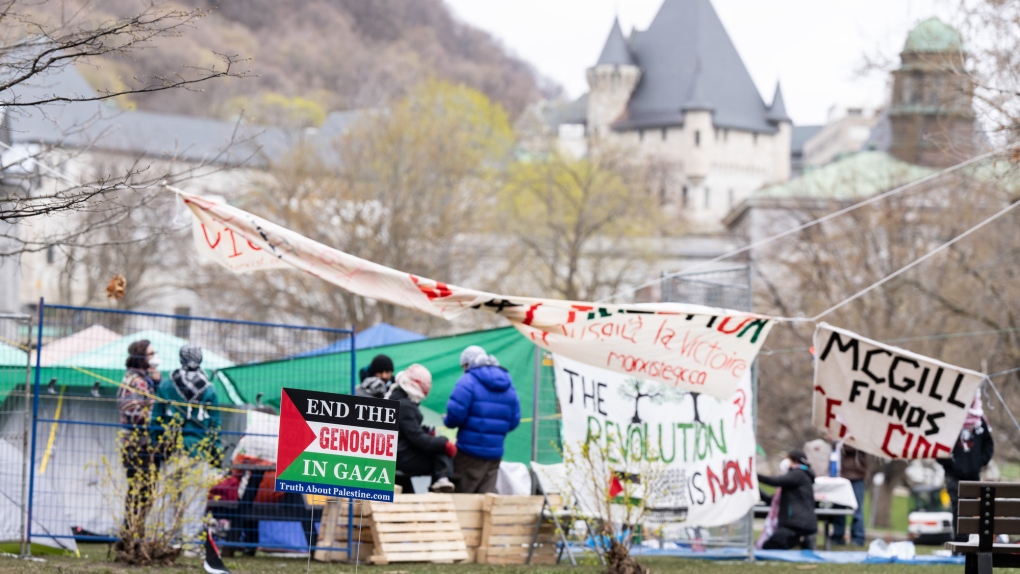
McGill requests 'police assistance' over pro-Palestinian encampment
CTV
McGill University says it has 'requested police assistance' about the pro-Palestinian encampment on its lower field.
McGill University says it has "requested police assistance" about the pro-Palestinian encampment on its lower field.
"We informed participants that this encampment was not authorized and gave them time to gather their belongings and leave the premises," McGill said Tuesday. "However, most have chosen to remain. As we worked through the steps, we also engaged in dialogue with representatives of McGill students." The university says it failed to reach a resolution with the student demonstrators and "decided to take the final step in our protocol." The scene did not appear to be tense Tuesday morning while CTV reporters were on the ground. "If McGill wants to find solutions to divest, they can. They're not wanting to. They're not having a dialogue right now and if they want to, there's always solutions to be had and I'm sure folks here would be more than happy for McGill to start moving on divestment," said one protester. In an email addressed to the McGill community Tuesday morning, McGill President Deep Saini called the encampment a "difficult and complex situation. "Having to resort to police authority is a gut-wrenching decision for any university president. It is, by no means, a decision that I take lightly or quickly. In the present circumstances, however, I judged it necessary," he wrote.
Saini said the school requested police assistance late Monday afternoon.
In its statement, McGill went on to say, "the safety and wellbeing of all our students and staff is our paramount concern." Lawyer Neil Oberman has filed an injunction on behalf of students, arguing that they need a safe place to study during exams. A judge is expected to decide on the injunction Wednesday.
Michelle Hartman, a McGill professor who teaches Arabic literature at the Institute of Islamic Studies, said she's concerned about any possible police involvement.
"Whenever we involve police, it's a concern. I don't see a lot of escalation, I see a peaceful protest full of people. But why should we even think that we have to be peaceful when there is a horrific genocide unfolding? In fact, the main escalation is threatening to call the police on students. Why would we call the police on students? To me, that's really the escalation. It's not a de-escalation to call the cops on your students, is what I'm saying," she said.
This comes after demonstrators started camping out on the school's grounds last weekend to demand the university divest from funds they claim are connected to Israel.
